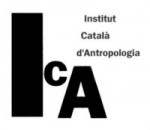7-10 NOVEMBRE 2012
Facultat de Geografia i Història - Universitat de Barcelona
Dimecres 7/11/2012
Dijous 8/11/2012
Divendres 9/11/2012
Dissabte 10/11/2012
Anthropology and Urban Conflict
This Conference is dedicaded to the memory of
Neil R. Smith (1954 – 2012)
“Strikes and revolutionary movements are endemic in the urban environment. Cities, and particularly the great cities, are in an unstable equilibrium”.
(Robert Ezra Park, 1925)
Social conflict is inherent in urban society in general. Social conflict is a historic constant that makes cities the epicenter of revolt in all of its forms. Despite our attempts to systematically classify the varied logics that lay behind existing disparate scales of uprising, e.g. large mass movements, small groups organized around blueprint actions, or individuals that quietly rebelled with daily contempt, to date it has not been possible to bring them all under a common systemic defiance. Political movements vs. social movements, peaceful vs. violent actions, organization vs. spontaneity, etc., these are old dichotomies overcome by the force of the present situation.
So, how does conflict come about in contemporary cities? The varied kinds of agitation featured in the current crisis are a good example of the different types of rebellion against public order, the norms that sustain it, and the authorities that implement them. From a demonstration against government cuts to apolitical graffiti somewhere on the urban fringe, from insubordination against mortgage repossessions to the refusal to pay for the use of public transport, from symbolic happenings performed in public spaces to the defense, at any cost, of squatted housing, of neighborhood resistance against evictions or of the opposition to identification raids on undocumented migrants.
The aim of this conference is to make an inventory and to analyze, from different ethnographic approaches, those often invisible phenomena of daily or extraordinary disobedience designed for, or inspired by, a rejection of spatial, economic, political, and social order. However, in order to identify them as mechanisms aimed at denouncing a particular order, we must approach these by looking at concepts that synthesize at once the processes that impose a homogeneous order as well as the practices that challenge it. Examples of these kinds of notions are Pere López Sánchez’s “Urban Desertions”, the “Counter-Movements” of Gaspar Maza, Gary W. McDonogh and Joan J. Pujadas, and J.P. De Gaudemar’s “Forced Mobilities”.
Under these concepts, struggles for the right to housing, copyleft, daily shop-lifting, food sovereignty, and disputes for public space converge, that is, the generation and conquest of parallel and pugnacious forms of relationship and exchange come together in order to face the current living conditions within urban society. Likewise, actions of “political resistance” coordinated by residents, assemblies, or independent groups take place, as well as those desertion phenomena that have unsettled social sciences so much, due to their lack of discourse: e.g. cyclical uprisings in the fringes of major cities and the periodic riots linked to sporting events. Instigated by the authorities and Capital, all of these phenomena link to mechanisms of urban domination and to the commoditization of the city, taking shape as projects that theme space and make heritage out of it, turning the environment into amenable tourism projects that stimulate the privatization of space, as well as gentrification and real estate speculation, all of which end up forcing large numbers of people into involuntary displacement. These processes are always accompanied by so-called “citizen involvement”, which nevertheless legitimates social cleansing and government practices that, far from achieving the involvement they advocate, squeeze it into juridical and punitive frameworks of control which are of an increasingly moralistic and repressive character.





